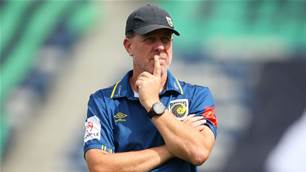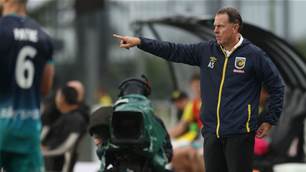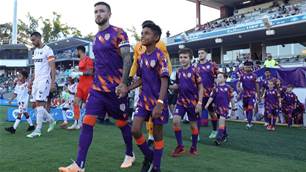The 2018-19 W-League season saw Perth Glory appear in their third grand final in five years.
Their captain and proud West Australian Sam Kerr is arguably the most talented player in Australia while there are five WA players across the Young Matildas and Junior Matildas teams.
So, it would seem strange to suggest that all is not rosy in the West.
It’s an unfortunate fact that Glory has failed to win in three grand finals and that WA has not produced a Matilda since Kerr made her debut a decade ago.
It’s also fair to say that Glory derives much of its success because of Kerr and players from the United States and interstate, rather than from an abundance of locally produced talent.
In most other states, a National Premier Leagues Women (NPLW) competition is in place with club coaches holding appropriate coaching qualifications, having a structured junior development program and a football department to oversee all of this.
By having this well-structured and well-coached junior program, clubs aim to produce local talent for youth national teams, W-League and Matildas.
Sadly, WA has no NPLW and the only criteria a club has to meet in order to play in the Women’s Premier League is for them to field an U23’s reserve team.
As a result, only three of the six teams have any junior structure in place, and there are no requirements for the coaches to hold coaching badges unless mandated by their clubs.
Many in the state feel the lack of an NPLW is hurting the game. They want Football West to mandate minimum standards for premier league clubs for junior development and coaching appointments until the time comes for NPLW to be implemented.
So far there is little sign of this happening.
The connection between Perth Glory and the local clubs is also an area of concern.
There is little evidence from the W-League club to engage with the local game outside of the National Training Centre with some feeling more could be done to improve the connections by holding coaching seminars and inviting more local players to development sessions to help both groups learn and grow.
It’s not all bad news though.
There has been continued growth in participation with FW figures showing there are almost 40,000 players in the State which is a growth of nearly 40 per cent in the period 2016-18.
Much is also hinging on the proposed State Football Centre, which is still waiting on funding approval from the WA State Government.
According to Football West CEO James Curtis, the centre would be home to the State’s home of football, especially the women’s game, with female development programs, Women’s Premier League and Matildas and Perth Glory training facilities.
“The recent Federal Election saw commitments from the Federal Labor Party for $20m and $16.25m from the Federal Liberal Party,” Curtis said.
“This was following a $37m election commitment by the previous Premier, Colin Barnett, in the 2017 State election.
“With $16.25m on the table with the Federal Government, Football West is working hard to ensuring the State Government commits to delivering this project and our aim is to see it delivered on time as part of a successful bid for the 2023 Women’s World Cup in Australia.”
Football West is also working to improve the game with its 2018-2022 Female Football Plan, which was a first across Australia. FW has already implemented several initiatives from the plan including free registration and upgrade courses for female referees, female-only C Licence course, Female Coach Mentoring Program and a Women's Masters competition.
Other encouraging signs are also coming from the clubs themselves.
Balcatta, Fremantle City and Northern Redbacks are all developing strong junior programs, and the latter club recently sent the first-ever female team from WA to play in the prestigious Gothia Cup in Sweden.
So while WA may not have all their puzzle pieces in place they are taking steps towards improving women's football in the State.
Related Articles

Stajcic lands Wanderers job as Lederer quits

Pelligra's $4m annual Perth Glory pledge seals takeover deal












